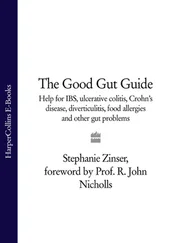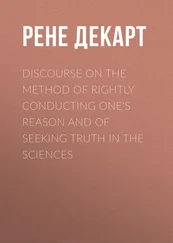"Thou openest thy hand,
And satisfiest the desire of every living thing"
(Ps. 145:16).
30. In reality God is forever in process of movement within us, that He may manifest Himself (all-Good) more fully through us. Our affirming, backed by faith, is the link that connects our conscious human need with His power and supply.
31. They who have claimed their birthright by thus calmly affirming their oneness with God know how free they can be from human planning and effort, after they have called into operation this marvelous power of affirmation. This power has healed the sick, brought joy in place of mourning, literally opened prison doors and bidden the prisoner go free, without the claimants calling for human assistance.
32. Understand, it is not necessarily the using of just this form of words that has availed in each individual case. It is the denying of apparent evil, and, in spite of all contrary evidence, the affirming of good to be all there is, affirming oneness with God's omnipotent power to accomplish, even when there is no visible sign of His being present, that has wrought the deliverance. In one case within my knowledge, just simply claiming, "God is your defense and deliverance," for a man who had for five years been an exile from home and country (through a series of deceptions and machinations that for depth and subtlety were unparalled) opened all the doors wide and restored the man to his family within a month, without any further human effort on the part of himself or his friends, and this after five years of the most strenuous human efforts of lawyers had failed utterly to bring the truth to light or to release the prisoner.
33. Some minds are so constituted that they get better results from repeated use of denials; others, from using denials less and affirmations more.
34. No definite rules can be laid down as to which will work most effectually in each individual case to eradicate apparent evil and bring the good into manifestation, but some little hint that may be helpful can be given.
35. Denials have an erasive or dissolving tendency. Affirmations build up, and give strength and courage and power. Persons who remember vividly, and are inclined to dwell in their thoughts on the pains, sorrows, and troubles of the past or present, need to deny a great deal; for denials cleanse the mind and blot out the memory of all seeming evil and unhappiness, so they become a far away dream. Again, denials are particularly useful to those who are hard and intolerant, or aggressively sinful; to those who, as a result of success have become overconfident, thinking the human is sufficient in itself for all things; to the selfish, and to any who do not scruple to harm others.
36. Affirmations should be used by the timid and by those who have a feeling of their own inefficiency; those who stand in fear of other minds; those who "give in" easily; those who are subject to anxiety or doubt, and those who are in positions of responsibility. Persons who are in any way negative or passive need to use affirmations more; the ones who are self-confident or unforgiving, need denials more.
37. Deny the appearance of evil; affirm good. Deny weakness; affirm strength. Deny undesirable conditions, and affirm the good you desire. This is what Jesus meant when He said, "All things whatsoever ye pray and ask for, believe [or claim and affirm] that ye have received them, and ye shall have them" (Mk. 11:24). This is what is meant by the promise: "Every place that the sole of your foot shall tread upon [or that you stand squarely or firmly upon], to you have I given it" (Josh. 1:3).
38. Practice these denials and affirmations silently in the street, in the car, when you are wakeful during the night, anywhere, everywhere, and they will give you a new, and, to you, a strange, mastery over external things and over yourself. If there comes a moment when you are in doubt as to what to do, stand still and affirm, "God in me is infinite wisdom; I know just what to do." "For I will give you a mouth and wisdom, which all your adversaries shall not be able to withstand or to gainsay" (Lk. 21:15). Do not get flustered or anxious, but depend fully and trustingly on your principle, and you will be surprised at the sudden inspiration that will come to you as the mode of procedure.
39. So always this principle will work in the solution of all life's problems--I care not what the form of detail is--to free us, God's children, from all undesirable conditions, and to bring good into our lives, if we will take up the simple rules and use them faithfully, until they lead us into such realization of our Godhood that we need no longer consciously depend on them.
Table of Contents
"Verily I say unto you, Whosoever shall say unto this mountain, Be thou taken up and cast into the sea; and shall not doubt in his heart, but shall believe that what he saith cometh to pass; he shall have it." --Mk. 11:23
"Science was faith once."--Lowell
1. The word faith is one that has generally been thought to denote a simple form of belief based mostly on ignorance and superstition. It is a word that has drawn forth something akin to scorn from so-called "thinking people"--the people who have believed that intellectual attainment is the highest form of knowledge to be reached. "Blind faith" they have disdainfully chosen to call it--fit only for ministers, women, and children, but not a practical thing on which to establish the everyday business affairs of life.
2. Some have prided themselves on having outgrown the swaddling clothes of this blind, unreasoning faith, and having grown to the point, as they say, where they have faith only in that which can be seen or intellectually explained.
3. The writer of The Epistle to the Hebrews, obviously a most intellectual man, and a learned theologian, before writing at length on the nature of faith and the marvelous results attending it, tried to put into a few words a condensed definition of faith:
4. "Faith is the substance of things hoped for, the evidence of things not seen" (Heb. 11:1 A.V.).
5. In other words, faith takes right hold of the substance of the things desired, and brings into the world of evidence the things that before were not seen. Further speaking of faith, the writer said, "Things which are seen were not made of things which do appear" (Heb. 11:3 A.V.); that is, things that are seen are not made out of visible things, but out of the invisible. In some way, then, we understand that whatever we want is in this surrounding invisible substance, and faith is the power that can bring it out into actuality to us.
6. After having cited innumerable instances of marvelous things brought to pass in the lives of men, not by their work or efforts, but by faith, the Epistle says,
7. "And what shall I more say? for the time will fail me to tell of Gideon, Barak, Samson, Jephthah; of David and Samuel and the prophets: who through faith subdued kingdoms, wrought righteousness, obtained promises, stopped the mouths of lions, quenched the power of fire, escaped the edge of the sword, from weakness were made strong, waxed mighty in war, turned to FLIGHT armies of aliens. Women received their dead by a resurrection (Heb. 11:32-35).
8. Do you want any more power or any greater thing than is here mentioned--power to subdue kingdoms, to stop the mouths of lions, quench fire, turn to FLIGHT whole armies, raise the dead to life again? Even if your desires exceed this, you need not despair or hesitate to claim their fulfillment, for One greater than you, One who knew whereof He spoke, said: "All things are possible to him that believeth" (Mk. 9:23).
9. Until very recently, whenever anyone has spoken of faith as the one power that can move mountains, we have always felt a sort of hopeless discouragement. While we have believed that God holds all good things in His hand, and is willing to be prevailed upon to dole them out according to our faith, yet how could we, even by straining every nerve of our being toward faith, be sure that we had sufficient to please Him? For does it not say, "Without faith it is impossible to be well-pleasing unto him" (Heb. 11:6)?
Читать дальше












